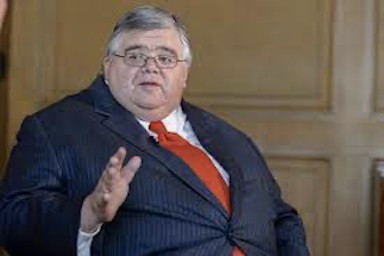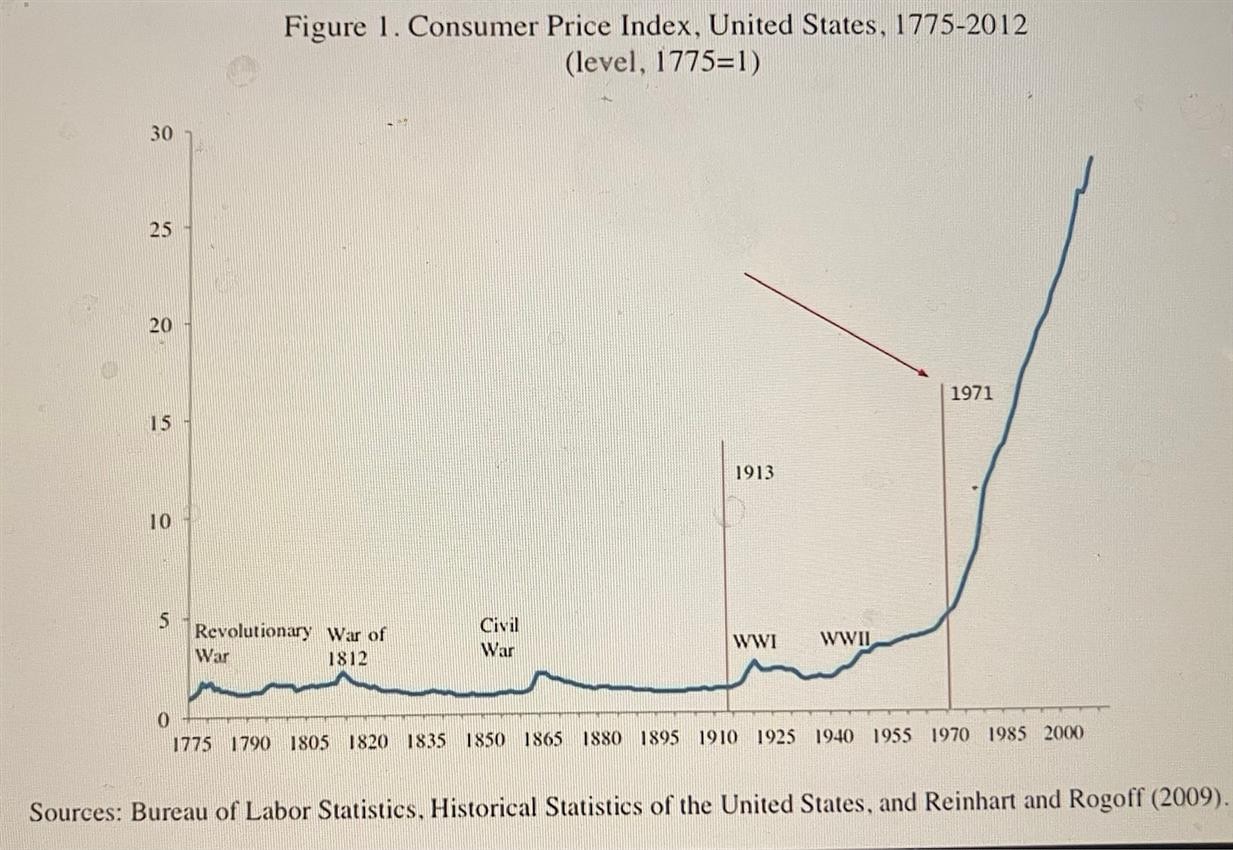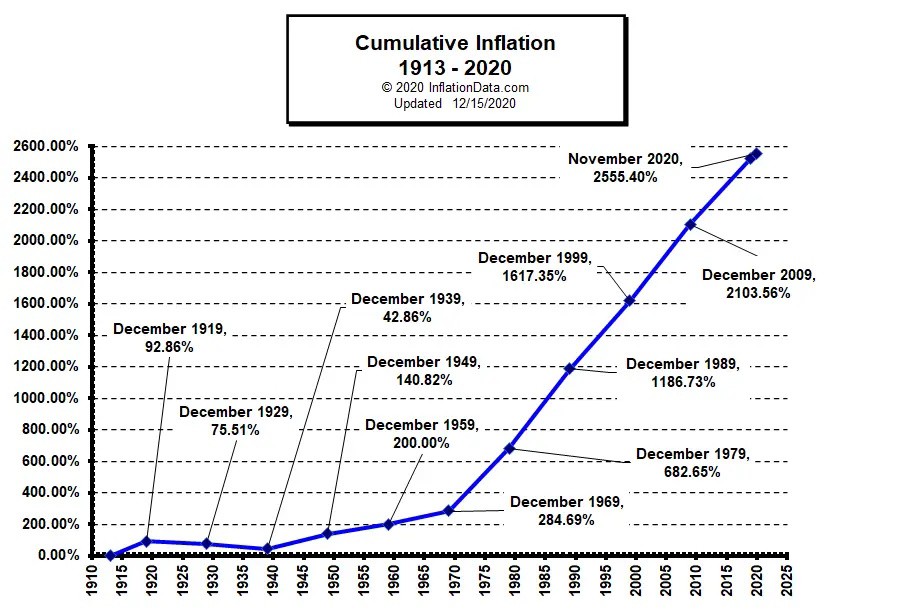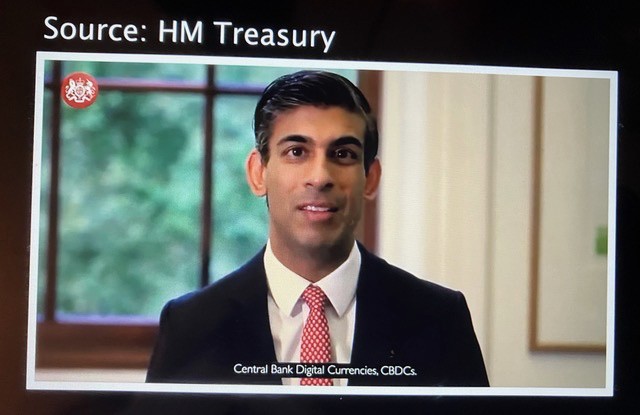The Separation of Money and State
Plato believed there exists an inescapable duality, a conflict between mind and body. He viewed human emotion as an enemy and saw reason as a "charioteer commanding horses: the unruly passions" - a view that has echoed down through the centuries.
But the history of human achievement is a powerful testimony to the fact that, uniquely, human beings can evaluate the emotional significance of their own experiences, calibrate their actions and define long-term goals. Only freedom-loving western civilisation has devised a simple code of law in order to protect this startling and creative ability.
And yet, as Douglas Murray concluded in his 2022 book, The War on the West, our civilisation appears to be in the midst of a profound crisis of identity. I believe this failure of confidence rests on an flawed idea - and ideas have consequences. Throughout history, demagogues have sought to devalue the two fundamental currencies upon which human self-actualisation depends: language and money. To do this, they must destroy the meaning of language and the value of money so that people come to distrust their own thinking and also each other.
Following the success of his influential 1859 book, On the Origin of Species by means of Natural Selection, or the Preservation of Favoured Races in the Struggle for Life, Darwin was urged to define the human condition, in particular, to explain the origin of human language. In his 1871 book, Descent of Man, Darwin asserted, "the survival of certain favoured words in the struggle for existence is natural selection". He further determined that human language, the characteristic attribute of our species, simply evolved as both "art" and "instinct". But this is a classic contradiction: 'art' requires volition, 'instinct' does not. In Descent of Man, Darwin wrote the words that, at a stroke, dissolved the distinction between free will and instinct:
"There is no fundamental difference between man and the higher mammals in their mental faculties".
By elevating animals to the status of volitional beings and relegating humans to the status of instinct-driven animals, Darwin managed to deny the bedrock of scientific empiricism and two thousand years of Aristotelian philosophy. Humans would indeed be treated like animals by a succession of psychopaths, megalomaniacs and brutal dictators in the years to come.
But Darwin was fundamentally an empirical scientist. The philosophically explosive release of Origin, driven by the urging of his contemporaries, was followed by a more thoughtful and, as it turns out, accurate take on evolution. Variation of Animals and Plants under Domestication, published in 1868, referenced the ideas of Jean-Baptiste Lamarck on the inheritance of adaptation. It is a heavy and detailed tome, not much discussed in Darwin's time and rarely referred to nowadays; Darwin's ideas in Origin were much more politically attractive. They still are. Variation, by contrast, places the organism itself as the active driving-force of evolution. It describes a less deterministic mechanism of inheritance than chance mutation and natural selection. Darwin called this phenomenon "Pangenesis". He referred to Pangenesis as, "my beloved child" and predicted, "it will turn out true some day!" Darwin was right. Pangenesis not only explains variation, development and reproduction - but also the inheritance of acquired characteristics. It is Pangenesis, rather than directionless random mutation, that anticipated the development of Epigenetics and gene-editing therapies like CRISPR, adapted from naturally-occurring, genetic-defence mechanisms.
The UK syllabus was recently updated to include the science of Epigenetics, Greek for 'above the gene'. Genes themselves are not alive. They have no agency. The genome is not a blueprint. It turns out that the epigenome is effectively an 'operating-system' by which all life-forms, including man, continually switch genes on and off - and tweak them - to optimise their survival. Human language, far from automatic, stereotyped and instinctive, appears to be an early invention, a tool of thought, and like tools, saved energy. Languages are learnt. The congenitally deaf are also dumb - not because they cannot talk but because they cannot hear. The invention of language gave mankind the unique ability to integrate sense and emotion, according to chosen goals. Unfortunately, many intellectuals persist in denying the existence of individual human agency. They call free will, "merely an illusion" and are determined to take us into a dark, instinct-driven, dystopian future.
As nineteenth century ideas about evolution began to undermine the God of the monotheistic religions, a substitute, requiring its own hierarchy, began to take shape. The idea of a fons et origo Creator was gradually overtaken by 'natural selection'. Nature was anointed as the new deity. But the gentle, idealised 'Nature' of the Victorian Romantic School was very different from the primitive, capricious gods of fatalistic, pantheist cultures - as the West was soon to discover. The latest manifestation of this flawed idea, expressed at Davos 2024, is the prospect of an imminent "Ecocide". Humanity itself has been identified as the enemy of 'nature'. The new deity and its hierarchy are demanding human sacrifice.
Ideas have consequences. When writing Origin and forming his ideas about evolution, in opposition to a fons et origo Creator, Darwin determined that purpose in biology is an illusion and that complexity in living things is the product of undirected, differential survival. German Idealist Friedrich Hegel (1770-1831) had held a similar view: "the continuous struggle between ideas and their negations" denies teleology, purpose in history. Both Hegel and Darwin explained history and biology as a process of struggle and survival.
Born in Prussia in 1818, Karl Marx began exploring sociopolitical theories among his 'Young Hegelian' university contemporaries. In a letter to fellow political activist, Ferdinand Lassalle, in 1861, Marx wrote: "Darwin's book is very important and suits me well that it supports the class struggle in history from the point of view of natural science." (Even Adolf Hitler's political manifesto, announcing his purification plans, was titled, Mein Kampf - My Struggle.)
In this socio-political ferment of conflicting ideas, Darwin's eventual realisation that adaptation is goal-directed - that is to say, teleological, was deeply unfashionable. His book Variation was written to challenge "nature's inexorable imperative" and to chart an alternative trajectory that identified the organism itself as the driving force of evolution.
But the damage was done. Totalitarians are not interested in scientific empiricism. They want an ideology. Marx realised that Darwin's Origin book, with its 'chance mutation and selection by nature', contained that vitally useful political concept: the denial of teleology, goal direction, over the vast span of evolutionary time. In 1861, Marx referenced Origin when he wrote: "Despite all deficiencies, it not only deals the death-blow to 'teleology' in the natural sciences for the first time but it also sets forth the rational meaning in an empirical way.....He that falls is remorselessly cast aside. It is the Darwinian struggle of the individual for existence transferred from Nature to society with intensified violence. It is for this reason that, under capitalism, the human world resembles mostly the world of rapacious animals."
Of course, Marx was not referring to Capitalism in its real sense. True laissez-faire, free-market Capitalism, where both money and language are outside the control of the state, has never yet been possible. Although The American Constitution, following England's Magna Carta, came closest to protecting the most successful civilisation the world has ever known. Its famous First Amendment - 'freedom of speech' - is struggling against the weight of politico-corporate interests, determined to build their own totalitarian lifeboat as the top-heavy, ship of state goes down. Without freedom of speech, democratic freedom cannot exist.
Towards the end of the nineteenth century, the nationalisation of education embedded Charles Darwin's more politically expedient ideas in the West's cultural institutions. This is ironic because Darwin admitted at the end of Origin that he had failed in his principle goal, to actually explain the 'origin of species'!
Darwin's assertion that human language is merely an 'instinct' encouraged the emergence of a political class determined to use language as a tool of control. As the Millennium approached, LSE Director, Anthony Giddens hosted the influential 'Darwin Seminars' - which I attended. Leading evolutionists, from this country and beyond, lectured a credulous audience on the importance of applying 'Darwinism' to every aspect of human existence. Anthony Giddens' "evolution of world society" was incorporated seamlessly into prime minister Tony Blair's Third Way, putting the final stamp of approval on the roll-out of Public Private Partnerships (PPP) - otherwise known as crony-corporatism. Crony-corporatism has given Capitalism a bad name. As our politically enabled oligarchs take charge of money, energy and speech, we should recall Giddens' Marxist sympathies, laid out in his cunning plan to use 'green energy' as a means of leapfrogging democratic accountability:
"There is at least the possibility of a truly global revolution in low-carbon energy taking place and a fundamental question is how rapidly or otherwise that will move. Marx famously said that "all that is solid melts into air," and perhaps it will be a version of that principle; we shall see. The new wave of globalisation, brought about by the pace, scope and awesome speed with which the digital revolution is advancing, is a major influence here."
Giddens, like so many of the political class, has also been an admirer of China's command-economy. But perhaps he failed to realise that the Chinese Communist Party's disdain for property rights and its 'disappearance' of 'dissidents' is very different from his own vision of a "world society". Marx's 1848 Communist Manifesto has been termed one of the world's most influential political documents. It calls for "class struggle" and "the forcible overthrow of all existing social conditions".
Marx's call to arms was co-authored and financed by Friedrich Engels, the revolutionary son of a German industrialist with textile businesses in Prussia and northern England. Without a trace of irony, Engels did not hesitate to use his family's capitalist derived money to support Marx's revolutionary ambitions. Engels' justification reads, "Finally, modern industry and the opening of the world market made the struggle universal and at the same time gave it unheard-of virulence". The title of his piece? "Socialism, Utopian and Scientific". What these impatient iconoclasts failed to understand is that science is merely a method of investigation. It cannot be the driver of an ideology. Contrary to the oft-repeated mantra: "the science is settled", science is never 'settled'.
Charles Darwin, like many of his nineteenth century contemporaries, was heavily influenced by the preaching of the Reverend Thomas Malthus whose cheerful sermons asserted, "starvation is God's retribution for the evils of men". In turn, the followers of Malthus were influenced by Darwin. Both schools would eventually coalesce in the horror of eugenics. At the beginning of the nineteenth century 'Malthusian catastrophism', based on the notion that population growth would soon outstrip available resources, was extremely popular. The technological breakthroughs of the Agrarian and Industrial Revolutions had caused whole communities to escape periodic starvation on the land and become wage-earners in the burgeoning towns and cities, resulting in an unprecedented increase in life-expectancy and infant-survival. The opening of new territory to agriculture, increasing international trade and advances in technology, eclipsed Malthus' dire predictions and enduring belief that resources are always and everywhere finite.
In the 1960s and 70s, as the US dollar wobbled and eventually lost its gold-peg, 'catastrophism' reentered the mainstream: Paul Erlich's The Population Bomb was published in 1968, followed by The Limits to Growth (Club of Rome 1972) and Is Growth Obsolete? (William D. Nordhaus and James Tobin 1972). All warned in vivid and uncompromising terms that economic growth would destroy the planet. The Malthusian idea of finite resources and an impending apocalypse has become increasingly popular with the issuers of currencies. An 'apocalypse' always seems to be attractive to those who intend to be the survivors. The notion that we are headed inexorably towards our own destruction is the eternal mantra of would-be totalitarians. When these prophets of doom intone endlessly, "A global problem needs a global solution", you know they would not disdain a 'final-solution'.
In contrast to the benevolence, tolerance and respect that once underpinned Enlightenment values, popular-culture, to this day, prefers to describe the human condition in Darwinian, kill-or-be-killed terms. Civilised values have given way to the authoritarian ideas of utopians who yearn to 'reset' society. Our very speech and thought processes are increasingly being monitored through the introduction of the oxymoron, 'non-crime, hate crime'! We appear to have been inducted into a new legal system with its own arbitrary laws for defining "misinformation" and "disinformation", adjudicated, of course, by the specialists in misinformation and disinformation. Indeed, it looks as though the social-credit-score system devised by Communist China's one-party-state, is being imported into the world's trading economies. Joseph Goebbels', Germany's war-time Minister of Propaganda and Public Enlightenment, would be proud.
Darwin's phrase, "There is no fundamental difference between man and the higher mammals in their mental faculties", has even informed the pseudo-science of Behavioural Psychology which teaches that humanity should be controlled on the principle of Pavlov's dogs.
Here's an official UK government report, published in 2021:
UK Government Behavioural Insights Team Secret Report On NetZero
October 22, 2021
"If we can impart one lesson, the first law of behaviour change would be this: reduce the burden of action for the greatest number".
The control of people through language and money has been the goal of every aspiring despot throughout history. In 2019, the US Federal Reserve website added a 4th function to its list of,
'The Attributes of Money':
1. Unit of account
2. Store of value
3. Medium of exchange
4. Means of social control
"But there is a fourth function of money: as a means of social control. The centralized monopoly over the functions of money held by sovereign governments and central banks has generated great income and wealth imbalances. Concerns about a lack of central bank performance with respect to financial inclusion, income inequality, economic system stability and the tendency of central banks to intermediate on behalf of large financial institutions supported the creation of cryptocurrency". -Federal Reserve Docket No. OP – 1670" This is true. The Keynesian fractional-reserve, debt-based economic model has been so successful at funnelling money and assets from the wealth-creators to those controlling the money-printer that "a means of social control" is being planned.
The 2008 financial crash was the wake-up call that, as it turned out, changed nothing! Banks and zombie-companies were bailed out, the centralisation of assets and the creation of monopolies continued at pace. More oligarchs appeared. Small and middle-sized businesses disappeared, or were taken over by their state-subsidised rivals. Meanwhile, Communist China's regulation-free environment, cheap labour-force and theft of intellectual-property made it the work-shop of the world.
Then, a free-market miracle happened. In 2009, the decentralised, secure, financial layer, that the Internet had been waiting for, was released quietly and without fanfare. Its inventor decided to remain anonymous - and for good reason: uniquely, the Bitcoin ledger and peer-to-peer technology operates with no central authority or banks. The monitoring of transactions and the issuance of money, is managed collectively by the distributed network. As an open-source protocol, the Bitcoin blockchain is public, nobody owns or controls it and everyone can take part. Of course, Bitcoin represents a threat to the old-order's notoriously manipulated and secretive monopoly.
In 2019, the US Treasury gave instructions that, "the Federal Reserve move quickly to facilitate a faster retail payments system, such as through the development of a real-time settlement service, that would also allow for more efficient and ubiquitous access to innovative payment capabilities. We believe this effort requires a proof-of-authority quantum computing based blockchain system."
Bitcoin is not secured by a centralised "proof of authority" but by raw energy termed, 'proof of work', and a network of dedicated computers spreading across the planet. In the cold-storage of a hard-wallet, held off the Internet, Bitcoin can last forever, like the ancient DNA in million year old pollen.
The Central Bank's version of Bitcoin, their Central Bank Digital Currency (CBDC) does not qualify as money. It is a ration-book, designed to be programmable. Its stated function is to prevent "ecocide" but its real function is to protect the financial establishment, their cronies - and to control civil-unrest.
Agustin Carstens, (below) Chairman of the Economic Consultative Council and the BIS (Bank of International Settlements) which coordinate the activities of the central banks, speaks fondly of the CBDC (Central Bank Digital Currency) which he insists will be a convenient alternative to the present system.
Carstens' plan is demonetisation, the "great reset", championed by the WEF (World Economic Forum) whose phrase, "You will own nothing and you will be happy" has depressed rather than elated those who have taken note of it. CBDCs have been trialled and imposed by the Chinese Communist Party, CCP, and over 100 governments. If you are 'naughty', they can block your funds, your ability to travel and your access to the Internet.
Justin Trudeau the Marxist Prime minister of Canada demonstrated the vulnerability of our already digitised monetary system to a shocked world when he seized and blocked the bank accounts of the peaceful, 2022 truckers' Freedom Convoy. That the bank accounts of high-profile individuals in many different countries have been so peremptorily blocked or seized, has only driven the popularity of Bitcoin, whose decentralised technology can never be blocked, seized or inflated. In 2021, at the G7 Conference in Cornwall, the UK's then Chancellor of the Exchequer, Rishi Sunak (soon to become the unelected prime minister), announced his own CBDC which he calls "Britcoin - in an attempt to make it sound British and to confuse it with the real thing.
According to Davos 2024, the plan for a world CBDC has not wavered. But ultimately, the Marxist 'long march through the institutions' rests on the consent of those institutions as well as on the money-printer. The recent shellacking of oligarchs at Davos by the newly elected president of Argentina was compounded by the fact that he chose to attack their god, Keynesian economics, from the perspective of its polar-opposite, Austrian School capitalism. Economist John Maynard Keynes (1883-1946), the author of our debt-based monetary system, was a self-proclaimed Marxist whose idea for a world-currency, Bancor, was rejected in favour of the gold-backed US dollar in 1945. The dollar replaced Sterling as the world's reserve currency but, like the British pound before it, eventually lost its gold-peg only to succumb to the perennial curse of centrally issued money: the erosion of its value as the printing-presses got to work.
Another embarrassment at Davos '24 went viral when Dr. Kevin Roberts, President of The Heritage Foundation, calmly delivered his skewering home-truths to camera while World Economic Forum acolytes were obliged to listen. He declared, "Everything that the WEF has said has been wrong". Ironically, the theme of Davos '24 was, "Rebuilding Trust". But when Bitcoin, whose blockchain is transparent, is repeatedly referred to as "the money of corruption, drug-dealers and money-laundering", by the real issuers of 'the money of corruption, drug-dealers and money-laundering', trust is the last thing the WEF can claim as its own.
On the 10th of January, 2024, the American Securities and Exchange Commission finally granted Spot Bitcoin ETFs, simultaneously, to 11 of the world's wealthiest asset-managers, signalling the beginning of the 'separation of money and state'. Now that even financial institutions are hedging against currencies that have been printed to oblivion, Bitcoin can accelerate the development of the Internet's financial layer to extend and secure international trade. As Elon Musk noted in his 2023 discussion about Artificial Intelligence, even if AI goes rogue and turns on its makers, Bitcoin, protected by maths and physics, will be virtually impossible to fake! The fledgling Internet would have incorporated a transaction layer but for the resistance of the central banks that have brought inflation-driven misery to millions and trapped the third-world in debt-fuelled poverty. Decades of Public/Private/Partnerships (PPP) contracted in bad-faith between governments and their corporate-cronies have corrupted both.
Free Market Capitalism reduces prices and waste by increasing efficiency. Crony-corporatism increases prices and waste by being inefficient. As author and start-up investor Jeff Booth observes, "When money is abundant, everything else is scarce. When money is scarce, everything else is abundant". When the state prints money, wealth, assets and capital are funnelled from those who earn it to those close to the money-printer. This is known as the Cantillon Effect: "an uneven change in relative prices resulting from a change in money supply", first described by 18th-century economist Richard Cantillon, who inspired political economists like Adam Smith and David Ricardo.
Bitcoin, whose security is protected by electrical energy, is spreading, incentivised by free-market forces. Bitcoin-miners go where the energy is cheap. In Africa, they are mining bitcoin by monetising otherwise wasted hydro-electricity, generated from the IMF's abandoned dam projects. The activities of the Bitcoin-miners have had an unforeseen side-effect: isolated, unbanked and impoverished communities in Malawi are benefitting, not only from a peer-to-peer currency, but from the availability of cheap electricity.
"In the vast and impenetrable African night, a small isolated village is lit up like a beacon. It has electricity. It has access to the Internet via satellite. It is growing small businesses. It is a nascent economy." From 'What Bitcoin Did'.
About the author
Christine is a retired business owner, science-writer and unfashionably optimistic futurist.









